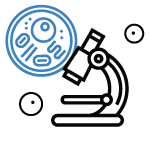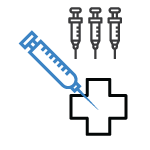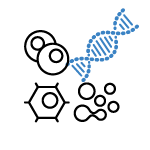2003
Establishment of the Tissue Engineering Laboratory at the Medical University of Warsaw within the structures of the Department of Biophysics and Human Physiology
The beginnings of LBBK date back to 2003, when the Department of Biophysics and Human Physiology at the Medical University of Warsaw received funding for the project of establishing the Tissue Engineering Laboratory at the Medical University of Warsaw from the Foundation for Polish Science as part of the Milab call. This is where their origins have had the LBBK team, the first equipment, scientific projects, and, above all, building a significant base of competences and know-how.
15 Feb 2013
Transfer of the Tissue Engineering Laboratory (TE Lab) at the Medical University of Warsaw into the structures of the Chair and Department of Histology and Embryology.
By the decision of the then Dean of the First Faculty of Medicine, prof. Miroslaw Wielgos, the Tissue Engineering Laboratory was transferred to the Chair and Department of Histology and Embryology. The Dean entrusted the management of the Laboratory to prof. Malgorzata Lewandowska-Szumiel.
Jan 2010 – Dec 2015
Implementation of 3 large multidisciplinary research and development projects:
- Bone substitutes: "New, multifunctional bone substitutes with high surgical maneuverability"; implementation date: January 2010 - January 2013; project value: PLN 5,342,000;
- Development project: "Development of an innovative method of bone loss regeneration using biorevital, resorbable implants inhabited with cells of autogenous origin - for use in dental surgery"; implementation date: December 2010 - May 2014; project value: PLN 1,680,000;
- Bio-implant: "Bioimplants for the treatment of bone tissue defects in oncological patients" - January 2010 - December 2015; project value: PLN 31,795,800
Jul 2014
Transfer of TE-Lab to a new headquarters in the CBP building
As part of the implementation of the largest biomedical and biotechnological undertaking in Central and Eastern Europe, the CePT project - Center for Preclinical Research and Technology, a comprehensive biomedical research center was created at the Ochota Campus in Warsaw, consisting of ten closely cooperating environmental research centers. At the Medical University of Warsaw, as part of the project, the Center for Preclinical Research (CBP) was established, hosting laboratories with the most modern equipment for conducting a wide range of preclinical research. It was to these modern rooms that TE-Lab was moved in July 2014.
1st Jul 2016
Transformation of TE Lab into a university-wide unit the Laboratory for Cell Research and Application
Under the order of the Rector of the Medical University of Warsaw, prof. Marek Krawczyk, on June 28, 2016, a new university-wide unit was created. The so-far existing Tissue Engineering Laboratory, with its already extensive research and development facilities in the field of in vitro cell research, was transformed into the Laboatory for Cell Research and Application (LBBK). The purpose of establishing the LBBK was to integrate scientific and research activities as well as manufacturing and service activities based on the in vitro work processes with human and animal cells developed in accordance to the highest quality standards.
2015 - 2018
Establishment of the Pharmaceutical Manufacturing Plant in LBBK
One of the main strategic tasks of LBBK was to create a small-scale manufacturing plant of advanced therapy medicinal products (ATMP) based on cells for new clinical applications at the Medical University of Warsaw. The implementation of the task was possible with the use of NCBR funding of the ABCtherapy project. The establishment of the Pharmaceutical Manufacturing Plant at LBBK included:
- 2015 - 2016 - Construction and equipment of a laboratory for the production of medicinal products in the GMP standard
- December 1, 2016 - Permission from the Minister of Health to run the Bank of Tissues and Cells
- December 6, 2016 - GIF consent to manufacture advanced therapy medicinal products - hospital exceptions (HE-ATMP)
- July 3, 2017 - GIF authorization to manufacture advanced therapy investigational medicinal products (ATIMP)
- September 14, 2018 - GMP certificate for LBBK Pharmaceutical Plant at MUW
2016
Establishment of Biobank at LBBK
By finalizing another strategic task, LBBK created the last - third pillar of its activity - a biobank specializing in human and animal cells. The goal of the LBBK Biobank has been to create a rich collection of well-characterized samples of biological material based on the highest quality standards, in order to contribute to increasing the level of reliability of basic research, clinical trials of drugs and clinical evaluation of medical devices, by gathering and sharing the high quality biological material.
Jan 2017
LBBK joins the BBMRI.pl Consortium. and the Polish Biobanking Network within the European Biobanking Network BBMRI-ERIC
In 2014, LBBK started to prepare, and in subsequent years to implement the project "Establishing a network of biobanks in Poland within the Research Infrastructure of Biobanks and Biomolecular Resources BBMRI-ERIC" as a member of the BBMRI.pl Consortium. Pursuant to the decision of the Minister of Science and Higher Education, the Consortium received funding for the project on January 27, 2017, which is a milestone on the way to fully controlled, standardized and legitimate activities in Polish biobanking.
31st Jan 2018 – 18th Jan 2020
Conducting the first clinical trial with 100 patients.
As part of the ABCtherapy project, we manufactured ATIMP products for use in the 2ABC clinical trial. The trial was based on the medicinal products' application to scars or signs of damage to the elastic skin of the dorsal surface of the hands (cutis laxa). For the purposes of the 2ABC clinical trial, adipose tissue from 100 patients was admitted to the laboratory within 17 months. As part of the clinical trial, LBBK produced 156 medicinal products, including:
- 36 medicinal products containing the SVF fraction,
- 94 medicinal products containing ADSC cells,
- 26 PLACEBO medicinal products.
18th Oct 2019 - Aug 2021
Carrying out the 1ABC medical experiment of using ADSC for diabetic foot ulcers
As part of the ABCtherapy project, in October 2019 we started the production of medicinal products for the 1ABC medical experiment in the form of an open trial. The aim of the study was to confirm the safety and efficacy of allogeneic ADSC preparations in the treatment of chronic wounds in the diabetic foot. Ultimately, the study group included 58 patients with the diabetic foot syndrome - 23 patients received a fibrin sealant containing allogeneic stem cells, 23 patients received Placebo, 12 patients dropped out of the study.






